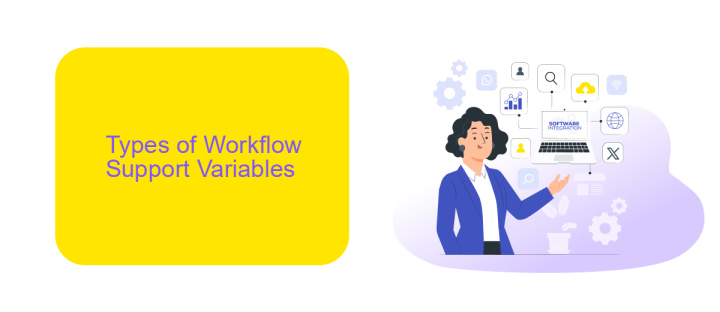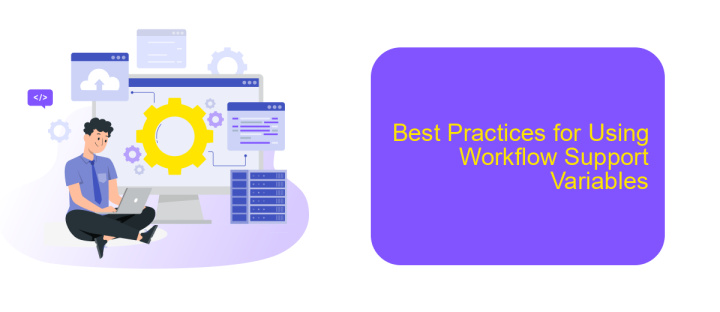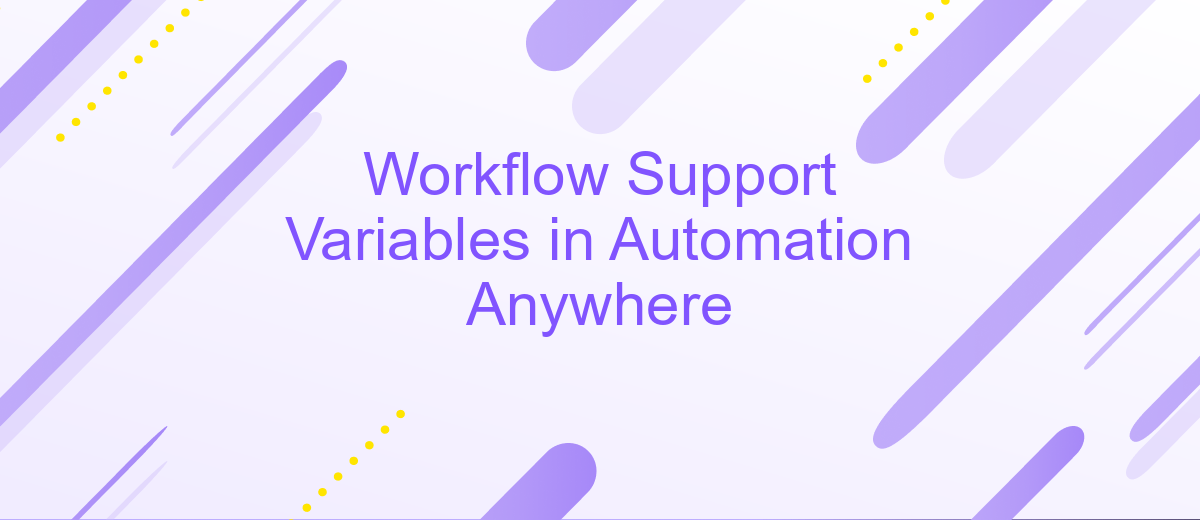Workflow Support Variables in Automation Anywhere
In the realm of robotic process automation, Automation Anywhere stands out for its comprehensive capabilities. One critical component that enhances its functionality is the use of workflow support variables. These variables streamline processes, improve efficiency, and enable dynamic task execution, making them indispensable for optimizing automated workflows. This article delves into the types and applications of workflow support variables in Automation Anywhere.
Introduction
Workflow support variables play a crucial role in enhancing the efficiency and flexibility of automation processes in Automation Anywhere. These variables enable the seamless flow of data and control across various tasks and workflows, ensuring that automation scripts can adapt to dynamic business needs.
- Improved data management: Workflow variables help in managing data effectively across different stages of automation.
- Enhanced flexibility: They allow for dynamic adjustments within the automation scripts based on real-time inputs.
- Seamless integration: Workflow variables facilitate smooth integration with external services and applications, such as ApiX-Drive, to streamline data flow and process automation.
Incorporating workflow support variables not only simplifies the automation design but also boosts the overall performance of automated tasks. By leveraging these variables, businesses can achieve higher levels of precision and adaptability in their automation projects, ultimately leading to more robust and scalable solutions.
Types of Workflow Support Variables

Workflow support variables in Automation Anywhere are essential for managing and optimizing automated processes. These variables can be classified into different types, each serving a unique purpose in the workflow. The primary types include string variables, which handle text data; numeric variables, which manage numerical values; and boolean variables, which store true or false conditions. Additionally, list variables are used to handle collections of items, while dictionary variables store key-value pairs for more complex data structures.
Another critical type of workflow support variable is the date-time variable, which is crucial for managing time-sensitive tasks. Integration-related variables, such as those facilitated by services like ApiX-Drive, are also vital. These variables help in configuring and managing integrations with external systems, ensuring smooth data flow and process synchronization. By leveraging these various types of workflow support variables, users can create more dynamic and responsive automation scripts, ultimately enhancing the efficiency and reliability of their automated workflows.
Using Workflow Support Variables

Workflow support variables in Automation Anywhere streamline the automation process by enabling dynamic data handling and process customization. These variables can be used to pass data between different tasks, manage workflow states, and ensure smoother transitions within automated processes.
- Define workflow support variables at the beginning of your automation project to ensure consistency.
- Use these variables to capture and store data dynamically during task execution.
- Integrate with external services like ApiX-Drive to enhance data flow and automate integrations seamlessly.
- Leverage these variables to manage decision points and conditional logic within your workflows.
- Regularly update and maintain your workflow variables to reflect changes in your automation processes.
By effectively utilizing workflow support variables, you can achieve greater flexibility and efficiency in your automation projects. Whether you're managing simple tasks or complex workflows, these variables play a crucial role in ensuring that your automated processes run smoothly and adapt to changing needs.
Best Practices for Using Workflow Support Variables

When working with Workflow Support Variables in Automation Anywhere, it's essential to follow best practices to ensure efficient and error-free automation. Proper management of these variables can significantly enhance your workflow's performance and reliability.
First, always initialize your variables at the beginning of your workflow. This practice helps in avoiding unexpected behaviors and ensures that each variable has a defined state before any operations are performed on them. Additionally, use descriptive names for your variables to make your workflows more readable and maintainable.
- Initialize variables at the start of the workflow.
- Use descriptive and meaningful variable names.
- Regularly update and document variable usage.
- Utilize error handling to manage variable-related exceptions.
For workflows involving integrations, consider using services like ApiX-Drive to streamline the process. ApiX-Drive can automate data transfers between various applications, reducing manual intervention and potential errors. By adhering to these best practices, you can optimize your workflows and achieve more reliable automation outcomes.
Conclusion
In conclusion, Workflow Support Variables in Automation Anywhere play a critical role in optimizing and streamlining automation processes. These variables facilitate dynamic and flexible workflows by allowing the automation to adapt to different scenarios and data inputs. By leveraging these variables, businesses can achieve higher efficiency, reduce manual intervention, and ensure more accurate outcomes.
Moreover, integrating tools like ApiX-Drive can further enhance the capabilities of Automation Anywhere. ApiX-Drive provides seamless integration with various applications, enabling automated workflows to interact with external systems effortlessly. This integration capability not only extends the functionality of automation solutions but also ensures that data flows smoothly across different platforms, leading to a more cohesive and efficient operational environment. As organizations continue to adopt automation, the strategic use of workflow support variables and integration services will be pivotal in achieving optimal performance and scalability.
FAQ
What are Workflow Support Variables in Automation Anywhere?
How do I create Workflow Support Variables in Automation Anywhere?
Can Workflow Support Variables be used across multiple bots?
How can I integrate external data sources with Workflow Support Variables?
What types of data can Workflow Support Variables handle?
Apix-Drive will help optimize business processes, save you from a lot of routine tasks and unnecessary costs for automation, attracting additional specialists. Try setting up a free test connection with ApiX-Drive and see for yourself. Now you have to think about where to invest the freed time and money!

